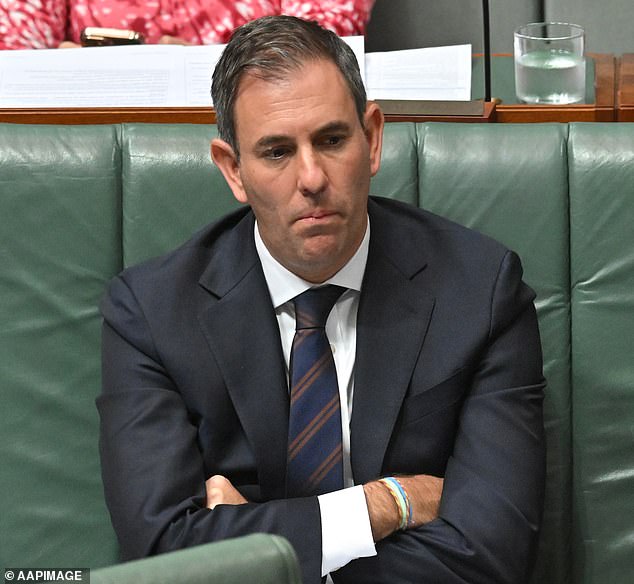Supermarkets and retailers saw their profits plummet in the first three months of 2024 and experts warn the economy is “one step away” from recession.
Through the March quarter, gross operating profits fell 2.5 per cent, the Australian Bureau of Statistics said on Wednesday, as tight household budgets reduced spending.
Profits in the construction, transportation and retail sectors are going into reverse, pouring cold water on accusations of corporate profiteering.
In the wake of falling commodity prices, mining profits also fell sharply, declining 6.1 percent during the quarter.
Profits in the accommodation, food services and hospitality sectors rose just 1 percent.
The new figures will form part of national accounts data for the March quarter, due to be published on Wednesday, which economists expect to show the economy expanded an anemic 0.2 per cent in the first three months of 2024.
In question time on Tuesday, Treasurer Jim Chalmers pointed to calls for Labor to deliver deeper spending cuts to help the Reserve Bank in its efforts to control inflation.
A result in line with consensus forecasts would see annual growth fall to just 1.2 percent, its weakest non-pandemic result since the dot-com crisis and the introduction of the GST in 2000.
That figure would also be far exceeded by projected population growth of 2.5 per cent, marking a deepening of Australia’s per capita recession into its fourth consecutive quarter.
During question time on Tuesday, Treasurer Jim Chalmers pointed to calls for Labor to deliver deeper spending cuts to help the Reserve Bank in its efforts to control inflation.
“Some of the more aggressive comments we see completely overlook the fact that the economy is already weak and people are already under pressure,” Dr. Chalmers said.
“Under these circumstances, it would have been crazy to tighten the screws even more on a weak economy and people who are already having a hard time.”
Following Tuesday’s data, KPMG chief economist Brendan Rynne said GDP figures for the March quarter would show the economy had been “one step away from a recession”.
“When combined with the December 2023 quarter, it shows that the national economy has barely grown in the last six months,” he said.
Under normal circumstances, Dr Rynne said a weak economy would prompt the RBA to cut interest rates to stimulate activity.
“However, as inflation remains unstable and showing this ‘last mile’ to the target band is a much more difficult path, KPMG expects the RBA to continue sitting on its hands for at least another quarter,” he said.
Separate figures also released by the ABS showed Australia’s current account plunged into a $4.9 billion deficit in the March quarter, much weaker than expected.
Throughout the quarter, imports of consumer goods such as clothing, footwear and medicines rose, while exports of key raw materials such as coal and iron ore fell.
On the services side, the value of Australia’s exports increased as more tourists came to Australia to attend Pink and Taylor Swift shows; However, imports plummeted as local travelers abandoned overseas trips due to rising cost of living pressures.
With import growth significantly outpacing export growth, Australia’s foreign trade is expected to decline 0.9 percentage points from Wednesday’s GDP reading.

Australia’s imports are significantly higher than exports, causing GDP to take a hit.
However, the decline is expected to be offset by a larger-than-expected increase in business inventories, which will add one percentage point to GDP.
But KPMG’s Dr Rynne warned that much of retailers’ restocking over Christmas and New Year had not yet been bought.
“This new stock has not been sold as consumers continued to reduce spending during the first quarter of 2024, resulting in a build-up of inventories across the country,” Rynne added.
Meanwhile, recurrent public spending is also expected to add another 0.2 percentage points to GDP, the ABS said, slightly above forecast.
“The outlook for public demand remains strong and the additional spending contained in the budget will flow over the next few financial years,” added Stephen Wu, senior economist at CommBank.
Citi chief economist Josh Williamson said Tuesday’s data indicated the economy was slowing faster than the RBA had anticipated.
“The RBA should view the slowdown as evidence that monetary policy is working to create a better balance between supply and demand,” he said.


